Who are the Primary Caregivers for Hospice Patients?

Discover the unsung heroes of hospice care: primary caregivers. From family members to trained professionals, these compassionate individuals provide essential support to patients nearing the end of life. Learn about their crucial roles, challenges, and their impact in ensuring comfort and dignity for hospice patients.
White Matter Disease: A Guide for Families
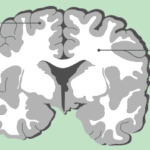
Discover the essentials of white matter disease, its impact on brain health, and how to support affected loved ones. This comprehensive guide offers insights into symptoms, diagnosis, treatment options, and practical tips for caregivers, empowering families to navigate this challenging condition with knowledge and compassion.
How Different Types of Illnesses Affect Our Lives and Deaths: A Summary of a Research Paper by Joanne Lynn and Colleagues
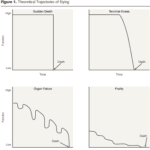
Have you ever wondered how different illnesses affect our lives and deaths? How do we cope with the uncertainty and unpredictability of our health? How do we plan for our future and make the best decisions for ourselves and our loved ones?
In this article, we will summarize and discuss the main points and findings of the paper and explore how they relate to our own lives and deaths. We will also provide practical and actionable suggestions for you to cope with and plan for your and your loved ones’ trajectories. We aim to help you understand the different types of illness trajectories, how they affect our lives and deaths, and how we can prepare for them.
Exploring Dementia Care: Choosing the Right Healthcare Provider

Dementia is a complex and challenging condition that affects millions of individuals, often requiring specialized care. When it comes to supporting a loved one with dementia, understanding the types of healthcare providers available is essential. Each specialist brings a unique set of skills and expertise to the table. In this article, we will delve into the various types of healthcare providers for dementia and help you understand when to consider one specialist over another.
The Myth of Medications and Terminal Illness: How to Cope with the Reality of Losing a Loved One
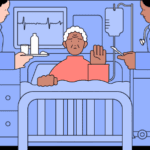
Discover the truth behind the myth that medications can keep terminally ill patients alive indefinitely. This article explores the psychological factors behind this belief and its consequences while providing compassionate strategies to cope with the reality of losing a loved one while ensuring quality end-of-life care.
Common Medications That May Cause Harm to Hospice Patients

Medications like anticoagulants, antidepressants, and NSAIDs can cause harm to hospice patients. Learn how to balance comfort and safety with individualized care.
Why Anticoagulants Should Be Reviewed Regularly for Deprescribing for Those Who Are Terminally Ill
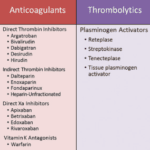
Anticoagulants can prevent blood clots but also cause bleeding risks for terminally ill patients. This article explains why these medications should be regularly reviewed for deprescribing, outlining factors like prognosis, preferences, and palliative care options to consider when making informed, compassionate choices aligned with the patient's goals.
Understanding the Importance of Quarterly Medication Reconciliation for Terminal Patients

This article discusses the importance of quarterly medication reconciliation for terminal patients and their families. It explains the benefits, such as improving patient safety, quality of life, symptom management, and the challenges and solutions. It also addresses the need to re-evaluate certain medications, like donepezil and memantine, for patients with dementia as their disease progresses.
Comparing and Contrasting the Five Most Common Types of Dementia
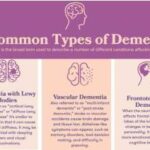
Explore the five most common types of dementia: Alzheimer's, Vascular, Lewy Body, Frontotemporal, and Mixed. Learn about their unique characteristics, symptoms, and progression. Understanding these differences is crucial for proper diagnosis, treatment, and care of individuals affected by dementia.
Unveiling the Promise and Perils of Blood Tests for Dementia

Delve into the world of blood-based biomarkers for dementia detection. This article examines the science behind these tests, their potential to revolutionize early diagnosis, and the complex ethical considerations surrounding their use. Discover how these tests might shape the future of Alzheimer's care and research.
Pressure Injury Prevention for the Terminally Ill: A Guide for Families and Caregivers

This guide provides practical strategies for preventing and managing pressure injuries in terminally ill patients. Learn how to assess risk, optimize nutrition, reposition properly, choose support surfaces, and care for the skin. Get recommendations for home, hospice, and hospital settings, as well as pain management and infection control. Empower yourself with evidence-based tips to improve your loved one's comfort and quality of life.
Understanding and Caring for a Loved One with Mixed Dementia
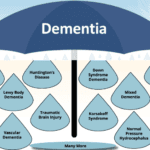
Mixed dementia combines symptoms of multiple types of dementia, presenting unique challenges for patients and caregivers. This article explores the complexities of mixed dementia, its symptoms, diagnosis, and treatment options. Learn practical tips for providing compassionate care and support to loved ones affected by this condition.
Top Ten Myths About Do Not Resuscitate (DNR) Orders
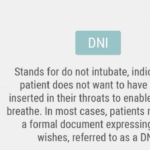
If you or your loved one has a severe illness, you may have heard about do not resuscitate (DNR) orders. This medical order tells the health care team what to do if the patient’s heart stops beating or they stop breathing. It is an incredibly crucial decision that can affect the quality and length of life. However, there are many myths and misunderstandings about DNR orders that can make it hard to choose what is best for you or your loved one. In this article, we will explain what DNR orders means and why it is important to understand it. We will also debunk the top ten myths about DNR orders and share the facts that can help you make an informed and respectful choice.
Top Ten Myths About CPR for Terminally Ill Patients

You may think that CPR is a miracle that can save anyone’s life, but that is not always the case. CPR is not practical for terminally ill patients, and it can cause more harm than good. In fact, studies show that only about 5% of terminally ill patients who receive CPR survive to leave the hospital. Many of them suffer from brain damage, broken ribs, or infections because of CPR.
This article aims to help you understand the truth about CPR for terminally ill patients. We will debunk ten common myths you may have heard or believed about CPR and provide you with accurate and reliable information. We will also help you make informed and respectful decisions about CPR for your loved one based on their wishes and values.
